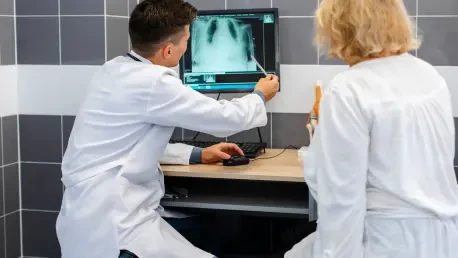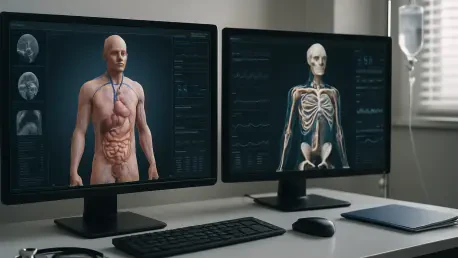

In a significant turn of events for millions of Medicare beneficiaries across the United States, telehealth services have been reinstated following a disruptive federal government shutdown that halted access to vital remote healthcare options. This development, secured through a recent funding deal

In a quiet corner of Hopkinsville, Kentucky, a medical breakthrough is offering renewed hope to families grappling with the devastating impact of Alzheimer’s disease, a condition that affects millions across the nation and often leaves loved ones searching for answers. Jennie Stuart Health

In a world where healthcare demands are surging due to an aging population and evolving medical needs, many critical roles remain under the radar, yet they are vital to patient care and recovery. Quinte Health, a prominent healthcare organization in the Quinte region, is stepping up to spotlight

The healthcare industry stands at a critical juncture, grappling with systemic challenges that impact millions of lives daily, from long patient wait times averaging over 20 minutes in many facilities to nearly 50% of healthcare workers reporting symptoms of burnout. These alarming figures

In a transformative move for healthcare in North Wales, a substantial £4.4 million investment has been announced to modernize hospital technology across several key facilities, promising to revolutionize patient care and diagnostic precision with cutting-edge advancements. This significant funding

Lung cancer stands as the leading cause of cancer-related deaths across the globe, casting a shadow over millions of lives each year with its devastating impact, and early detection through low-dose chest computed tomography (CT) screenings has emerged as a beacon of hope. Particularly for

Picture a world where medical care isn’t just a response to illness but a carefully crafted prediction of health needs, uniquely designed for each person based on their specific biological and lifestyle data. Digital twins, sophisticated virtual replicas of patients, medical devices, or entire

Imagine a hospital where nurses can be in two places at once, providing hands-on care at the bedside while simultaneously monitoring and supporting patients from a remote command center. This innovative vision is now a reality at University Hospitals (UH) through the groundbreaking Connected Care

In a striking revelation that underscores a critical vulnerability in Nigeria’s healthcare system, experts have highlighted the nation’s overwhelming dependence on imported diagnostic reagents, spending billions of limited foreign reserves annually to sustain this need. This issue, brought to the

In the remote and underserved regions of southern Hebron within the Occupied Palestinian Territory, countless women and girls grapple with the devastating effects of gender-based violence (GBV), compounded by geographic isolation and systemic crises. Amid a deepening humanitarian situation in the